Another IRGC Soldier Killed In Clashes With Kurdish Group
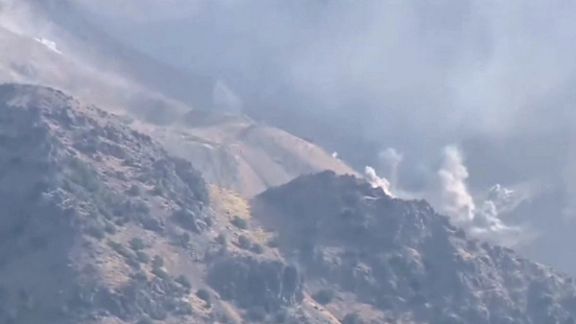
In clashes between Iran’s Revolutionary Guards and Kurdish groups in the west of the country, at least one IRGC member was killed on Friday.

In clashes between Iran’s Revolutionary Guards and Kurdish groups in the west of the country, at least one IRGC member was killed on Friday.
“A clash took place between the Islamic Revolutionary Guard Corps forces and one of the Kurdish groups in the villages of Darreh-ye Tafi and Sardush on the western edge of the Zarivar Lake in Marivan, Kordestan province, during which an IRGC agent named Razgar Tabireh was killed,” the IRGC-affiliated Fars News Agency reported Saturday.
The name of the Kurdish group is not mentioned in this report, but some sources say PJAK was the party involved in clashes with the IRGC on Friday evening.
The Kurdistan Free Life Party, or PJAK is a leftist opposition armed militant group. It has waged an intermittent armed struggle since 2004 against the Iranian regime, seeking self-determination through some degree of autonomy for Kurds in Iran.
Hengaw Human Rights Organization, a Kurdish rights group, also reported on Tuesday that a member of the Revolutionary Guards was killed during a clash with PJAK in the Kosalan area of Sarvabad.
After "Woman, Life, Freedom" protests the pressure on Kurdish civil groups and activists has increased significantly.
According to Hengaw, within the past four days, at least 160 citizens from Eslamabad-e Gharb in Kermanshah Province were summoned and interrogated by security agencies.
These measures were taken after two IRGC servicemen were killed in this region.
On Tuesday, France-based Kurdistan Human Rights Network (KHRN) said the heights of Kosalan mountain near the city of Sarvabad in Kordestan province were shelled while IRGC forces were deployed to the region in the latest attacks against Iran's Kurdish groups.
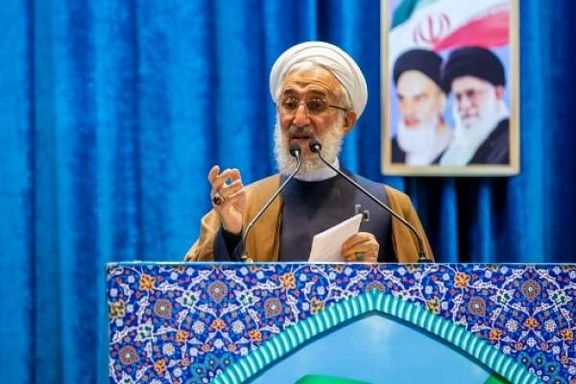
An Iranian cleric claims Iran has developed an aircraft that can show 15 kilometers underground where mines and tanks are located.
Friday Prayer Imam of Tehran, Kazem Seddiqi, on Friday made the odd remark during his sermon saying that one of the results of the nuclear industry is exploration.
“We have oil and gas resources underground, but it is important to understand where in the country we have these resources.”
Iran, which enriches uranium to 60 percent purity without any civilian use, tries to claim that it needs the controversial nuclear program for scientific and industrial progress.
He further expressed hope that with the launch of such new tools, the welfare of the Iranian people will be promoted.
“We have serious problems in the field of drinking water in the country, the nuclear industry has been able to prepare sea water for drinking in the southern city of Bushehr and some other places,” he added.
The Islamic Republic is known to make unfounded claims of producing of high-tech devices and weapons as a show of deterrence and as propaganda for domestic audiences.
Last year, Iran claimed it has produced a laser weapon, saying the Islamic Republic is now among the few countries in the world that can build such weapons.
Although Iran wanted to highlight its laser weapon capabilities to target drones and cruise missiles, the directed-energy weapons including lasers are still at their experimental stage even in more advanced countries, and are not seen as practical, high-performance military weapons, because a laser generates a beam of light which needs clear air, or a vacuum, to work.
In the early months of the coronavirus pandemic the IRGC unveiled Mosta'an 110, a simple-looking device that it said was capable of detecting the virus from 100 meters. The episode turned into public ridicule.
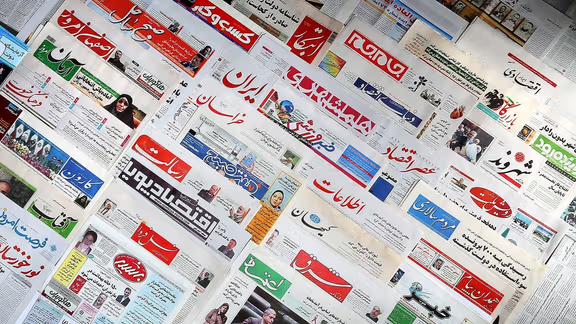
Grim commentaries this week marked the 21st anniversary of Etemad, one of the few reformist papers left in Iran, as dozens of journalists were jailed in recent months.
The daily's managing editor Elias Hazrati, its leading columnist Abbas Abdi and former government spokesman Ali Rabiei wrote their accounts of the difficult situation facing the media in the newspaper's anniversary edition.
Hazrati, a former reformist lawmaker, wrote that he launched the paper at the end of his parliamentary career as "a media outlet for the majority of Iranians." He added that during the past 21 years he kept his promise of giving voice to both the older and younger generations of Iranian journalists.
Etemad has been banned several times since its launch and its journalists came under pressure by the authoritarian government particularly under conservative presidents.
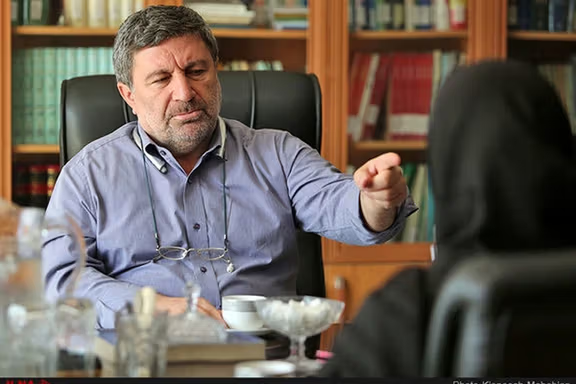
Complaining about censorship and government pressure on the press, Abdi wrote that the government presumes newspapers that reflect society's problems are portraying a disparaging image of the country. Statesmen in Iran do not know that problems will not be solved if they are not discussed by the media.
Abdi said: "Newspapers act like medical examination reports. If nobody pays attention to what they highlight, problems will lead to serious abnormal situations." He further complained that the Iranian government has never taken the newspapers seriously and this is part of the crisis of media in Iran.
Abdi added: "The government constantly insists that newspapers should not publish "negative news" and "disparaging accounts." They don’t see that the people are living in the society and see for themselves what is going on.
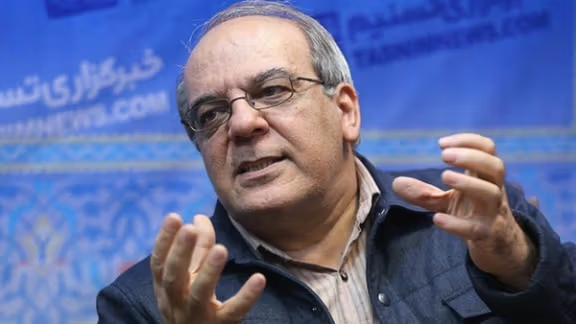
"The crisis of the media in Iran has roots in different narratives and the government's reliance on its own narrative. As long as the narratives rather than realities drive the government's policies, the media cannot have their true status," Abdi said.
According to Abdi, Etemad and a few other newspapers have refused to play the role of trumpets that voice the government's views and propaganda. The fact that this newspaper has survived for 21 years, so far is in itself a success. What makes this effort worthwhile is the daily's commitment to reflect the truth.
Abdi was pointing out the fact that reformist newspapers in Iran are short-lived as governments have a pretty low threshold for tolerating criticism. At times, like 2001, tens of newspapers and other publications were closed down overnight without any explanation. At least one reformist newspaper, Mellat, was banned before the day it hit newsstands for the first time.
However, Etemad and a few other relatively critical newspapers are not free of daily censorship and self-censorship, as their reporting has to somewhat accommodate the regime’s ideology and rhetoric. For example, they cannot criticize the Supreme Leader, who should be mentioned as “the esteemed Leader.”
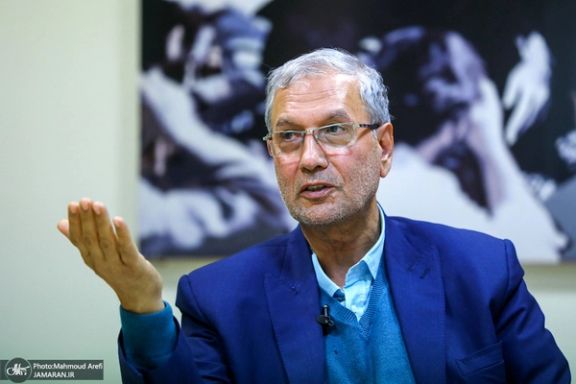
Meanwhile, in an article in Etemad, former government spokesman, Ali Rabiei wrote that what makes the media situation different in Iran is the negative impact “of arresting and imprisoning independent Iranian journalists."
What Rabiei said also referred to the emigration of hundreds of Iranian journalists to other countries, including Britain and the United States where key foreign-based Iranian media operate from.
Rabiei pointed out that the Iranian government does not allow independent media to be active in Iran and arrests and jails journalists working on investigative reporting. But the emigration of independent journalist has gradually turned into a security threat for the Iranian government.
Iranian officials on a daily basis complain about investigative reports by foreign-based media that disclose corruption and inefficiency in the government and among its officials. Nonetheless, as Rabiei observed, the government perceives even the existing toothless media as a threat.
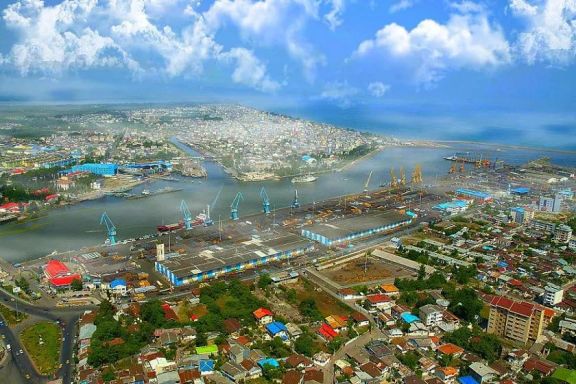
Iran and Russia have discussed plans to launch a joint shipping company amid international sanctions on both countries and expanding bilateral ties.
Iranian Road Minister Mehrdad Bazrpash, who has travelled to Russia to attend the 26th Saint Petersburg International Economic Forum (SPIEF), urged the launch of a joint shipment company as soon as possible.
In a meeting with Igor Levitin, aide to the President Vladimir Putin, and the governors of the Volga River region the two sides reviewed the capacities of transportation from the Volga and the inland Caspian Sea, IRNA state news agency reported.
Dmitry Azarov, the governor of Russia's Samara, which is one the top ten Russian cities in terms of national income, also proposed creating a river hub in the three ports of Syzran, Tolyatti and Samara port, saying the development of these ports are important for Putin.
CNN reported last month that Tehran is using the Caspian Sea to transfer suspected weapons cargoes to Moscow.
It quoted experts as saying that as cooperation between the two countries deepens, the Caspian Sea route is being used to move drones, ammunition, and mortar shells that the Russian government has purchased from Iran to use in Ukraine.
Last year, shipping analytics company Vortexa also reported that eleven ships that previously carried Iranian crude transported Russian oil and products since April 2022.
“As more companies scale back from carrying Russian crude and products, those familiar with the sanctioned crude trade will continue using their tankers to assist Russia in exporting oil East of Suez,” Armen Azizian, a crude market analyst at Vortexa.

A police chief in norther Iran has threatened to “break the neck” of anyone who speaks out against compulsory hijab, adding that he will take responsibility for that.
Hassan Mafkhami police commander in Mazandaran province on the shores of the Caspian Sea was inspecting beaches where millions of Iranians visit from the capital Tehran and other cities during the summer. Women are forbidden to bathe without cloths and should be fully cladded on the beaches.
He told law enforcement agents, “In this province and its towns if someone God forbid raises her voice, break her neck according to law and I will take responsibility for it.”
Tens of thousands of Iranian women have been defying compulsory hijab this year after nationwide protests erupted last September when Mahsa Amini, a 22-year-old woman died in ‘morality police’ custody from severe head injuries.
Hardliners in the clerical-military regime, however, have vowed “to restore order”, saying that hijab for women is their “red line”. The conservative dominated parliament is debating a bill to further codify the hijab, including imposing hefty fines on women and denial of social services if they refuse to cover their heads.
The issue has turned into a rallying cry against the regime that regularly intervenes in the private lives of the citizens. Many regime insiders have urged caution, saying that another hijab incident can lead to renewed anti-government protests.
Police officials have vowed to install “smart cameras” on the beaches of the Caspian Sea to identify women who break the rules.
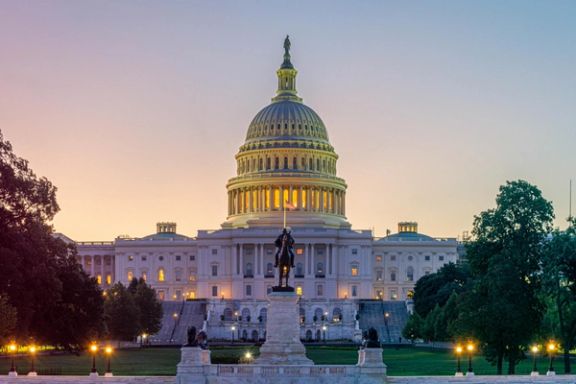
As US State Department once again denied any deals with Iran despite reports of many contacts, US lawmakers became vocal about any attempts to circumvent Congress.
The State Department spokesperson Matthew Miller in his press briefing on Thursday responded to questions by reporters about a possible deal in the making, saying, “with respect to Iran’s nuclear program, there is no deal.“
But the fact remains that the Biden administration has had even direct talks with Iranian diplomats for the past 7-8 months according to multiple reports, in addition to talks mediated by Oman and others.
Also, Washington agreed to the release of $2.7 billion of Iran’s money frozen in Iraq for “humanitarian” purposes. Some argue that no matter what the formal label of the arrangement may be any funds Iran can use for imports alleviates financial pressure from the cash-strapped regime.
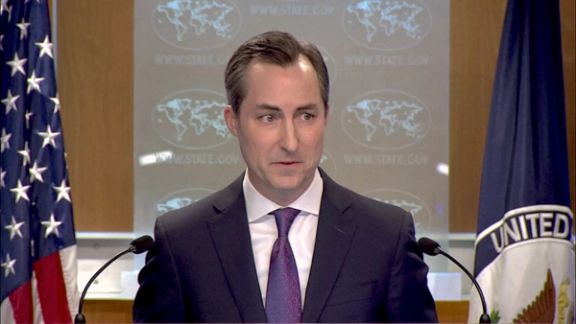
Given these concerns both Republicans and Democrats in Congress have begun stirring to make sure that the administration does not circumvent the lawmakers and according to law informs them of any deals with Iran.
"I'm extremely disappointed. To think this will end their uranium enrichment is childish. They'll continue to act in bad ways. When Iran is selling oil that it shouldn't, it gets those dollars and pumps it right back to extremist organizations," Sen. Joni Ernst told Iran International's Arash Aalaei.
The House Foreign Affairs Committee Chairman Rep. Michael McCaul sent a letter to President Joe Biden on Thursday saying, “I am disturbed by recent revelations that the Administration has re-engaged in “proximity talks” with the Iranian regime, and that the results of these discussions have included the apparent greenlighting of sizable payments to Iran.“
McCaul urged Biden to respect the Iran Nuclear Agreement Review Act of 2015 (INARA), which was enacted during the finalization of the Joint Comprehensive Plan of Action (JCPOA) in 2015 to allow Congress to oversee dealings with Tehran. The Obama administration decided not to make the JCPOA nuclear deal a treaty, given opposition in Congress at the time and agreed to INARA to neutralize opposition among lawmakers.
“I urge the Administration to remember that U.S. law requires that any agreement, arrangement, or understanding with Iran needs to be submitted to Congress pursuant to INARA. Any continued obstruction will rob the American people, and in particular the Gold Star families whose loved ones were killed by Iran-backed terrorism, of answers about why the United States is facilitating the lining of Iran’s coffers,” McCaul said.
The Jewish insider reported Thursday that Senator Lindsay Graham (R-SC), joined by Bob Menendez (D-NJ) and Sen. Richard Blumenthal (D-CT), also introduced legislation on Wednesday that would require the director of National Intelligence to notify Congress within 48 hours if Iran produces or possesses uranium of greater than 60 percent purity.

The Iranian Enrichment Monitoring Act is a new attempt led by Graham, Menedez and other lawmakers to ensure congressional oversight of how the executive branch deals with Iran’s nuclear program.
The website also quoted several senators, some supporters of the JCPOA voicing concern about secret dealings with Iran and releasing funds to the Iranian régime that continues its „malign activities“ in the region and sending arms to Russia.
State Department’s spokesperson Thursday more clearly listed what the administration seeks in its dealings with Iran.
"Number one, we want Iran to take steps to de-escalate tensions, which of course includes steps to curb its nuclear program," Miller said, and added that Iran should cease its actions that destabilize the Middle East.
"Number three, we want Iran to stop its support for Russia’s war on Ukraine,“ he said, referring to a new complication with Iran that emerged in mid-2022. He also demanded the release of US citizens Tehran has imprisoned „for political leverage."